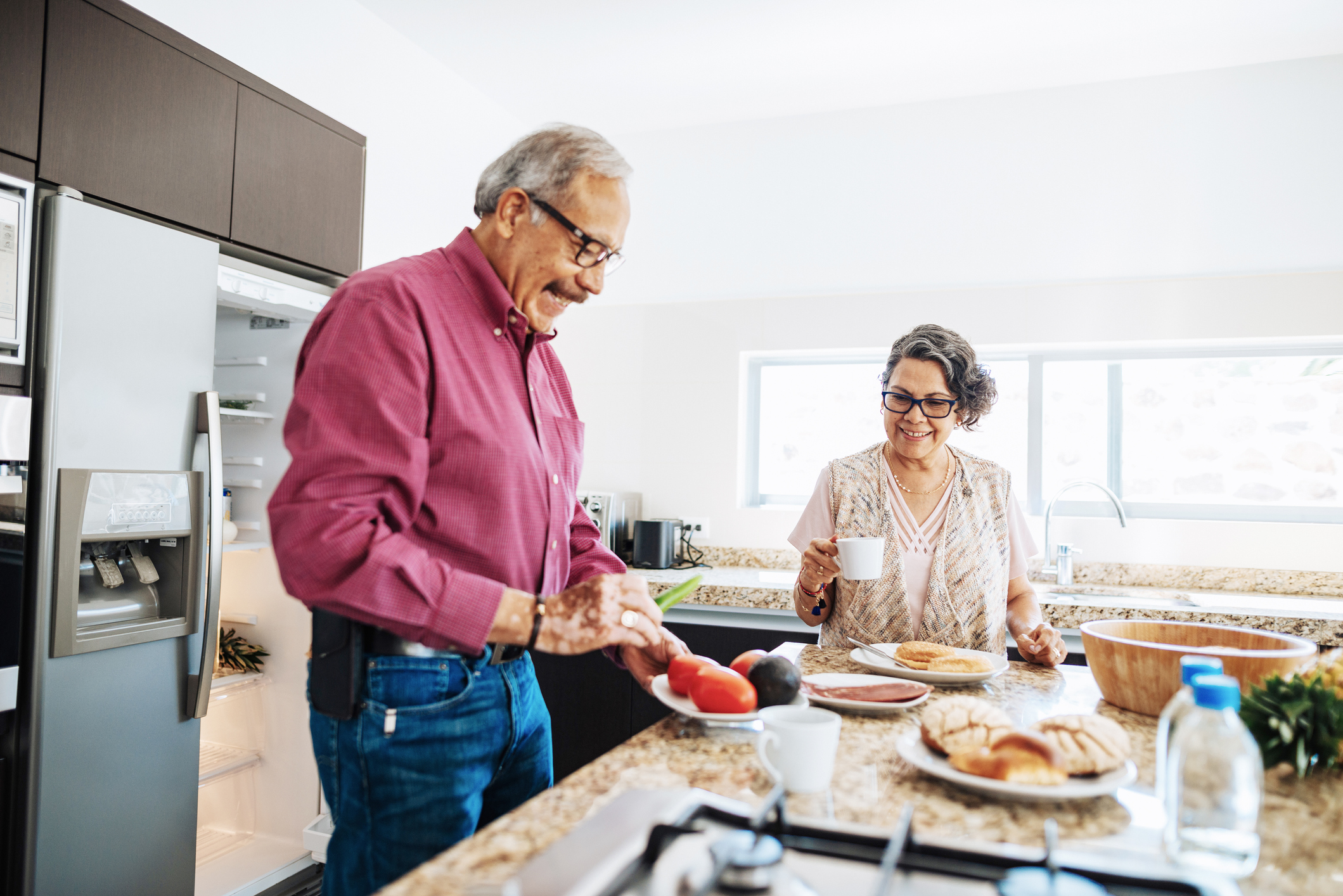
We often think of aging as being filled with many negatives for our health. And while many things do change as we get older, you can take steps to promote healthy aging.
It’s a reality—we change as we get older. Our habits change, our lifestyles change, and our health changes. The latter is especially true, since everything from our risk for certain health conditions and our ability to walk comfortably can evolve during the aging process.
But no matter how old you are now, there are some habits you can begin that will keep you healthy as you get older.

September is known as Healthy Aging Month, making it the perfect opportunity to shine a light on staying healthy throughout life. Read on as David Guthrie, MD, internal medicine physician with West Tennessee Medical Group, offers five tips on how to promote healthy aging.
Healthy Aging Tip 1: Stay Active
You know you need to exercise, but do you know why? Physical activity benefits people of all ages, but it’s especially beneficial for older adults. Regular exercise can help you maintain a healthy weight and avoid chronic health issues that are more common as we age.
Don’t just stick with cardio, though. While cardiovascular activity is good for your heart, other types of exercise will also promote healthy aging. Strength training, through lifting weights or doing bodyweight exercises, can help you maintain muscle mass and keep your bones strong and healthy.
Balance exercises are also particularly important for older adults, since they train the body to maintain good balance. Since fall risk increases as we get older, this is one way you can limit your risk.
Healthy Aging Tip 2: Pay Close Attention to Nutrition
Like many other facets of life, our nutritional needs change and evolve as we get older. You may find that your appetite has decreased or that your taste buds aren’t quite as sharp. But the need to fuel your body with healthy foods doesn’t change.
Prioritize fruits and vegetables in your diet. Choose fresh fruits and veggies from a farmers market to capture those foods at their most flavorful—and fill half your plate with them at meals.
Supplement fruits and vegetables with lean protein, such as chicken, turkey, or fish, and whole grains. A small amount of healthy fat is also important, so add nuts, olives, and fatty fish into your regular rotation.
Since taste can diminish as you get older, try flavoring your food with spices. These can pack a punch without adding unnecessary sodium into your diet.
Healthy Aging Tip 3: Exercise Your Brain
Just like you need regular exercise for your body, you also need to regularly exercise your brain. If you think that learning stops as you get older, think again!
Learning new things is what keeps your cognitive health in good shape. Take up activities like puzzles or memory games to engage your brain in new and different ways.
Trying out a new hobby can have a similar effect, as can performing a normal task in a new way. Even something as simple as brushing your teeth with your left hand instead of your right can force your brain out of its norm.
Healthy Aging Tip 4: Build Relationships & Socialize
Believe it or not, staying socially active is an important component of healthy aging. In fact, isolation and loneliness have been shown to be as threatening to health as too much sitting and smoking in some cases.
On the flip side, socializing offers many health benefits. It has been shown to reduce the risk of depression, reduce stress, increase self-esteem, and improve longevity.
But how can you stay social when we’re still supposed to minimize the amount of time we’re spending in close contact with others outside the home? Think outside the box.
Instead of having an in-person book club or social hour, have a virtual get-together. Or plan for an outdoor picnic or gathering where you can stay adequately spaced out from each other.
Healthy Aging Tip 5: Work to Reduce Fall Risk
We mentioned above that fall risk increases as you age. One in three adults ages 65 and older fall at least once each year. The increased risk is caused by a number of factors, including medications, health conditions, and decreased mobility and balance.
It’s important to actively take steps to minimize your risk. If you believe medication is causing you to feel off-balance, talk with your doctor about an alternative. Participate in balance exercises to improve your balance.
Take a hard look around your home and remove any potential fall hazards, such as clutter, loose rugs, and cords running across the floor. Install handrails on both sides of the stairs and in strategic spots in the bathroom.
Minimizing your risk of falling can start with a checkup! Your provider can talk with you about your medications, your health, and other factors that may need to change. FIND A PROVIDER HERE.

